2024 Grantees

Barbara K. Ariue, MD, FACAAI
Addressing Knowledge Gaps in Diagnosing and Managing Inborn Errors of Immunity
Barbara Ariue, MD, FACAAI is leading a 12-month project to address gaps in the understanding and management of Inborn Errors of Immunity (IEI). Her project draws on the results of an IEI Survey that was distributed to ACAAI members in Spring 2024. The survey covered diagnosis, categorization, and management of primary immunodeficiencies (i.e., treatment and consultation/collaboration with other specialists and IEI experts ), as well as potential barriers and knowledge gaps. Materials developed under this project will address important educational needs within our specialty, while also serving as a resource to educate physicians and advance practice providers in primary care and other specialties on immunology consultive services. The overall goal of the project is to improve diagnosis and management of primary immunodeficiencies, strengthen collaboration with other specialties, and contribute to better treatment outcomes.

Derek K. Chu, MD, PhD
Community-based food allergy management and prevention: Embracing diversity to enhance equitable community-based precision food allergy care and advance learning health systems (TITAN Community)
Derek Chu, MD, PhD will lead a 24-month project to determine the threshold (minimum amount of food allergen that elicits a reaction) in allergic individuals with the aim of improving patient safety, food manufacturing standards, and public health policies. The community-based multicenter cohort study will focus on food allergy thresholds and their predictors, addressing the historical lack of community-based research and inclusion of diverse populations. The overall goal is to quantify diagnostic accuracy to reduce health disparities, advance food allergy care, and serve as a model for multicenter academic-community partnerships.
“I would like to thank The Allergists’ Foundation for this invaluable opportunity which enabled my team to better understand current practices in the diagnosis and treatment of Inborn Errors of Immunity, as well as educational needs of ACAAI members. The support we received will help us equip the practicing allergist with further resources and connections to provide enhanced patient care in this area.”
– Barbara Ariue, MD, FACAAI
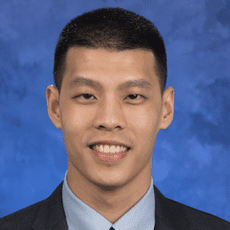
Toan T, Do, MD (FIT Member)
Application of Artificial Intelligence as a Clinical Tool for the Diagnosis of Subtypes of Angioedema
Toan Do, MD, will devise a 12-month project to develop an AI-based clinical tool for accurately diagnosing angioedema subtypes. Dr. Do’s AI model will aid in diagnostic work-up, quicker specialist referrals, and accurate management decisions in both outpatient and acute settings. The overall goal is for this new technology to achieve at least 90% accuracy, reducing emergency healthcare visits and unnecessary medical procedures by efficiently delivering appropriate medications to the right patients.
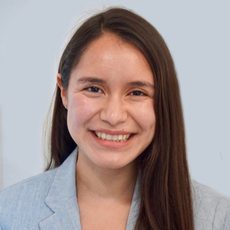
Ruby Moreno, MD
Assessing the role of food insecurity in pediatric food allergy care at a two-site academic allergy center
Ruby Moreno, MD, will embark on a 12-month study to assess the impact of food insecurity and screening practices on food allergy care. The study will involve a retrospective analysis of food insecurity screening practices and pediatric food allergy outcomes, as well as a survey on perceived barriers among key stakeholders, including patients, community pediatricians, and local food bank employees. By gaining more insights into the experiences of patients, specialty and non-specialty physicians and advanced practice providers, Dr. Moreno hopes to develop a model for food allergy care that allergists can use in the context of their communities.
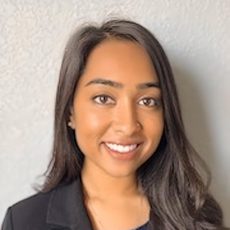
Devika R. Pillay, DO (FIT Member)
Preparing for the Unexpected: Tackling Asthma and Anaphylaxis Emergencies in Inner City Schools by Implementation of a Structured Educational Program
Devika Pillay, DO will conduct a 12-month project to identify and address knowledge gaps in asthma emergency/anaphylaxis recognition and inhaler/epinephrine autoinjector administration among staff in Detroit’s inner-city schools. Participating high-risk schools will be provided with a structured educational program for their staff, which will consist of an in-person educational intervention (didactic and hands-on sessions) and access to online modules. The overall goal for the project is to strengthen the schools’ asthma/anaphylaxis management and ultimately improve health outcomes and decrease morbidity due to delayed asthma/allergy care among their students. The project also aims to bridge the gap between allergists, school systems and families to improve communication and proper implementation of emergency asthma and anaphylaxis care plans.
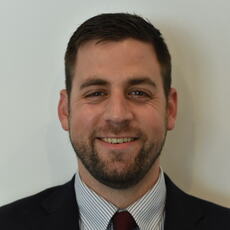
Benjamin C. Stewart-Bates, DO (FIT Member)
Developing a National Registry for Female Carriers of X-linked Chronic Granulomatous Disease: Increasing Recognition and Optimizing Diagnosis and Treatment
Benjamin Stewart-Bates, DO will pilot a 24-month project to address knowledge gaps among allergists/immunologists, primary care physicians and advanced practice providers related to female carriers of X-linked Chronic granulomatous disease (XLCGD). The project aims to develop the first national registry of female carriers XLCGD, describing clinical manifestations, laboratory and genetic biomarkers, and treatment strategies. Dr. Stewart-Bates has teamed up with The CGD Association of America (CGDAA) – a patient advocacy group that connects female carriers of CGD with resources in the community. He has been focused on characterizing the symptoms, diagnosis, and treatment of almost 900 female carriers to improve diagnosis times, understand the disease’s natural history, and enhance treatment outcomes. Through this project, he hopes to design educational materials and distribute the findings to community allergists/immunologists, primary care physicians and advanced practice providers, as well as patients and other members of their health care team.
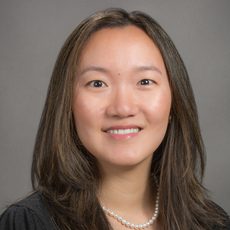 Jing Yi Sun, MD |
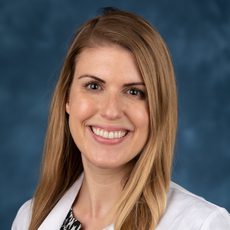 Kelly Colas, DO, PhD (FIT Member) |
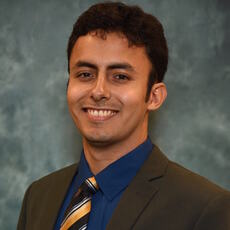 Gabriel Mendoza, MD (FIT Member) |
Food Insecurity Screening for Pediatric Allergy Patients in the Seattle Area
Drs. Sun, Colas, and Mendoza will lead a 12-month project that aims to establish a simple process for the identification of pediatric allergy patients at risk of food insecurity (FI). Using a validated FI-screening tool called the Hunger Vital Sign, they plan to screen an estimated 500 patients in the Seattle area and assist at least 70 families that screen positive for FI. The project’s overall goal is to develop a practical model for community allergists to identify food allergy patients who are at risk for FI and to provide interventions that address these patients’ unique challenges in gaining access to nutritious foods.
“We are so grateful for the incredible opportunity to share our work on food insecurity with the ACAAI community. Thank you for selecting our project and enabling us to better understand and to support our patients experiencing this issue.”
– Kelly Colas, DO, PhD; Jing Yi Sun, MD; and Gabriel Mendoza, MD
The 2024 awards are made possible through the generous donations from College members and support by GSK. Learn more about the work of our grantees by reading the project summaries.
“The Allergists’ Foundation has received a strong response to our call for proposals under the Community Grant Program, which makes our job of selecting projects for funding very challenging,” said Todd Mahr, MD, FACAAI, the chair of the Foundation’s Grants Allocation Committee. We are very much impressed with the quality and creativity of the proposals we’ve received so far and we look forward to seeing more project ideas with each new grant cycle.”
To learn more about the Community Grant Program and how you can help support it, download the brochure or contact us for more information.
